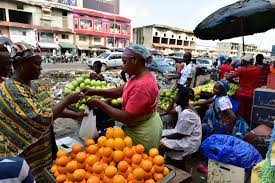The prevention and fight against pandemics must be based on the “One Health” approach and strengthened collaboration, according to the Director General of the United Nations Food and Agriculture Organization (FAO), Qu Dongyu.
A functional literacy project using information and communication technologies (ICT) targeting 400 women traders was launched on Wednesday in Abidjan.
This is phase 4 of the literacy project for traders, launched by the Ivorian Minister of National Education and Literacy, Mariatou Kone, at the Anono Primary School Group in Cocody, in the east of Abidjan, during a ceremony coupled with International Literacy Day 2021.
The Minister of National Education thanked the partners involved in this project that allows women operating in the markets to know how to read, write and calculate with ICT, all of which reduces the digital divide.
UNESCO, in partnership with Nestlé Cote d’Ivoire, organized the celebration of this International Literacy Day under the theme: “Literacy for a Human-centered Recovery: Reducing the Digital Divide.”
Ms. Mame Pane Sakho, the representative of the General Manager of Nestlé Cote d’Ivoire, said that since 2017, the food firm is associated with this literacy project.
“With phase 4 we live 400 more ‘Mamis’ (traders of Maggi broths) in markets throughout the country,” said Ms. Mame Sakho, in a speech.
She noted that the firm works with 20,000 women called ‘Mamis,’ noting that “85 percent of them have never been to school. This program breaks down the barriers to their empowerment.”
The head of the UNESCO Office in Abidjan, Anne Lemaistre, noted that it is essential to keep literacy and digital technology at the heart of the relaunch of this project which, despite the Covid-19 pandemic, is evolving.
On July 19, 2021, Cote d’Ivoire launched the General States of Education and Literacy. Ms. Anne Lemaistre assured that her institution will accompany the country in this reform.
However, she said, the State of Cote d’Ivoire must seek a balance between formal and informal education. As proof, making women literate is to ensure their autonomy.
Phase 4 of the functional literacy project for women traders using information and communication technologies is the result of a UNESCO-NESTLE-DAENF (Direction de l’Alphabétisation et de l’Education Non Formelle) tripartite partnership.
It is based on digitized training content and a smartphone application called Alphatic. Thanks to this method, women traders in the markets of Abobo, Cocody and Marcory learn to read, write and calculate in order to better manage their socio-economic activities.
To date, satisfactory results have been recorded in terms of the level of acquisition of new skills. This project aims to promote adult education-training within the national community.
It is in line with the United Nations’ sustainable development goal of gender equality and empowerment of women and girls. This project was born out of the need to provide literacy training adapted to the digital age.
The preparatory phase began in 2016. As for the training of the target audience, it began in 2017 in the commune of Port-Bouët with 260 learners before expanding to Yopougon the following year.
To date, this project has strengthened the capacities of 550 women traders, supervised by 50 young people, trained and hired.
AP/ls/fss/abj/APA


